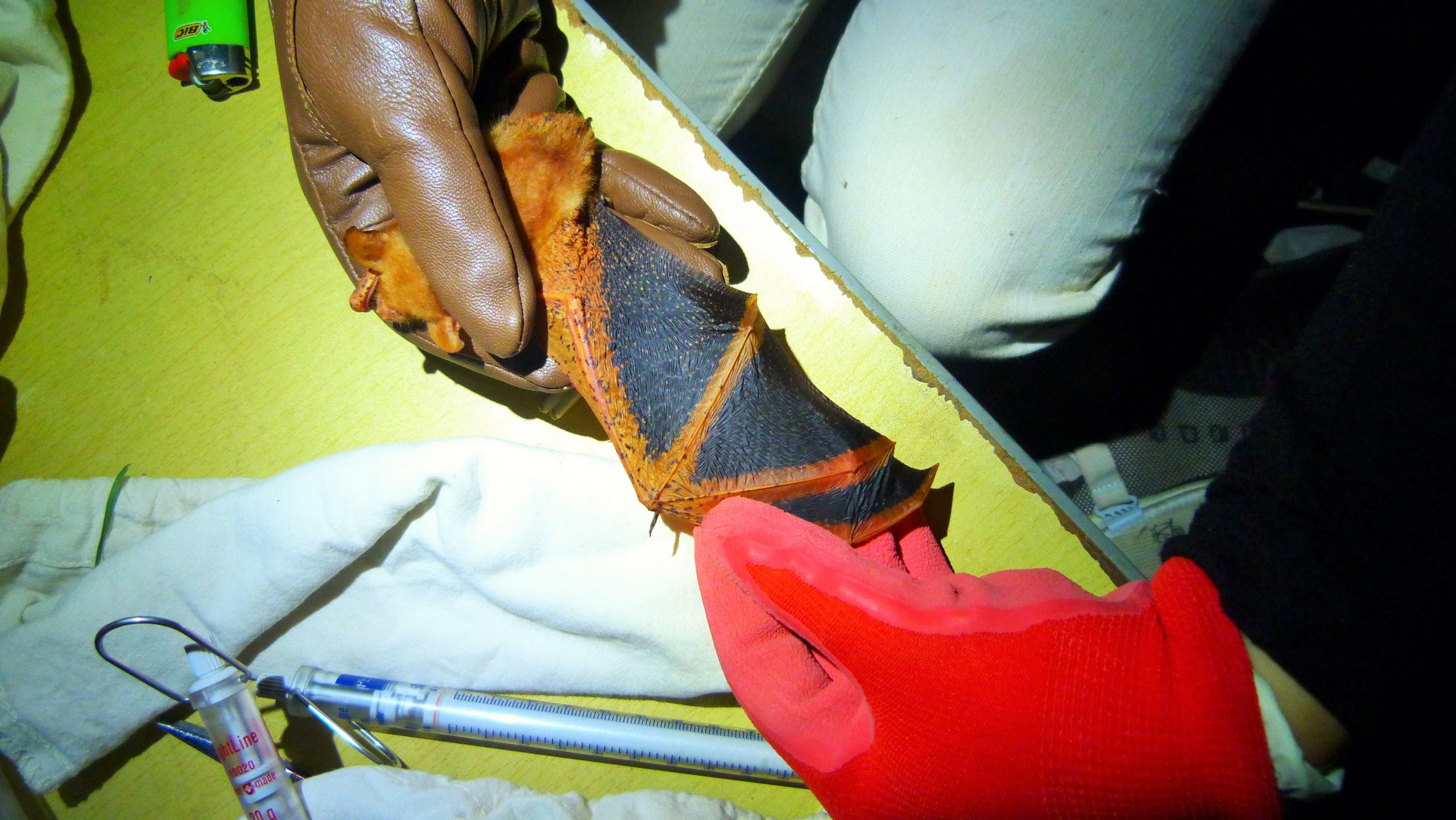2021-02-17
By Eleanor Glass
For centuries the world’s great forests have been under siege. Research is increasingly highlighting the risks posed to life on this planet by the loss of these vital carbon stores, and the collapse of the biodiversity they contain. My experiences travelling to Northern Peru and Southern Africa in recent years to carry out wildlife research have shown me how the ‘true wilderness’ of many people’s imagination is ceasing to exist.
At these frontlines of high plant and animal diversity, increasing deforestation drives human-wildlife conflict over land and food resources, and thus survival. In South Africa the once diverse landscape is now greatly divided, privatised and fenced, while in the Amazon basin huge expanses of rainforest have been decimated for logging and mining.
While the origins of COVID-19 remain uncertain, the current pandemic has highlighted the profound risks posed to humanity by zoonotic disease spill-over. According to a recent report by IPBES (Intergovernmental Science-Policy Platform on Biodiversity and Ecosystem Services), an estimated 1.7 million currently undiscovered viruses are thought to exist in animal hosts. Of these, 631,000–827,000 could have the ability to infect humans (IPBES 2020). The study specifically identifies the importance of engaging Indigenous Peoples and local communities in pandemic prevention programmes. It also clearly traces human induced land-use change, deforestation, agricultural expansion and wildlife trading as driving pandemics. It is not wildlife that is to blame, it is us.
While conducting bat research in Malawi during 2016, I witnessed how habitat loss reduced natural roost sites for bats. This forced them to move into human populated areas to seek refuge, creating ideal conditions for disease spread, as well as leading fearful local people to destroy bat roosts. Such tensions have only increased in the current grim circumstances: bats have (unfairly) borne the brunt of the blame for the COVID-19 pandemic, provoking responses ranging from online jokes to the mass slaughter of bat populations. Such prejudices, whilst arguably based on fact, are easily blown out of proportion according to one virologist I worked alongside, who said that most of the threats of disease spread could be mitigated if humans only learnt to live with, rather than against, nature.
"If recent events have taught us anything, it is that our fates are deeply entwined: environmental health means global health for all organisms, and that includes ourselves."

Not only is the risk of disease connected to increasing and indiscriminate land use change – whole ecosystems are being degraded and polluted. Indigenous communities who depend on the fragile natural balance within these territories are often hardest hit, and can do little to respond without secure tenure and recognised rights. During a stint of research during 2018 in the Pacaya Samiria National Park in the Northern Loreto region of Peru, members of the Cocama Indigenous Peoples informed me of how mining upriver had affected their livelihoods: heavy metals such as uranium had leached into water systems, meaning fewer, smaller fish, with many suffering deformities. Being heavily dependent on fishing for both food and trade, and also reliant on the same tainted water sources, the impact on the Cocama People has unsurprisingly been devastating, both for health and economy.
Over a lifetime, the Cocama people had also noticed more fundamental changes – to the water table, and more extreme seasonal changes, accompanied by droughts and floods. The Amazon basin is a huge carbon store. However, with deforestation this stored carbon dioxide is being released, contributing to more global temperature and weather change, further affecting ecosystems and human populations.
Indigenous Peoples like the Cocama are not just the victims of uncontrolled habitat loss and land-use change, however. They must also be part of the solution. They have for generations built up immense traditional knowledge on everything from herbal cures for tropical diseases to the sustainable management of forestlands which now represent some of the last remaining pockets of rich biodiversity.
“Almost half of the intact forest in the Amazon lie within Indigenous and Afro-Descendant communally managed forest territories,” noted David Kaimowitz, Forest and Farm Facility manager at FAO, during the Tenure Facility’s 2020 Learning Exchange.
“In the case of Brazil, indigenous territories have more vertebrates than all the protected areas outside the indigenous territories. These areas are very important for the global climate, regional climate and for biodiversity.”
From everything I have seen, and from ever more compelling research, it is clear that we must urgently mitigate deforestation rates, for the health of those forests, for the flora and fauna that dwell there, and for the communities who have safeguarded those lands for generations. Securing the ancestral land and forests of indigenous and local communities helps us achieve these goals. We ignore at our peril however, that such steps are also vital for the wider health of all humankind. If recent events have taught us anything, it is that our fates are deeply entwined: environmental health means global health for all organisms, and that includes ourselves.
Eleanor Glass is currently on a research internship with the Tenure Facility, focusing on connections between land rights, deforestation, disease and the One Health initiative. She has a background in Ecology and Global Environmental History, conducting wildlife research in parts of Peru, Malawi and South Africa. This has led her to bridge the gap between natural and social sciences, spending last year researching the human-bat relationship in South Africa.
References
Ellwanger, J H el al. (2020) Beyond diversity loss and climate change: Impacts of Amazon deforestation on infectious diseases and public health. An. Acad. Bras. Ciênc., vol.92, n.1, e20191375 https://doi.org/10.1590/0001-3765202020191375.
IPBES (2020) Workshop Report on Biodiversity and Pandemics of the Intergovernmental Platform on Biodiversity and Ecosystem Services. Daszak, P., Amuasi, J., das Neves, C. G., Hayman, D., Kuiken, T., Roche, B., Zambrana-Torrelio, C., Buss, P., Dundarova, H., Feferholtz, Y., Földvári, G., Igbinosa, E., Junglen, S., Liu, Q., Suzan, G., Uhart, M., Wannous, C., Woolaston, K., Mosig Reidl, P., O’Brien, K.,
Other Blog Posts
Categories: